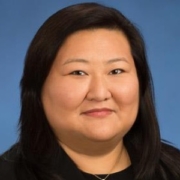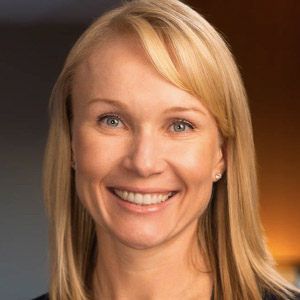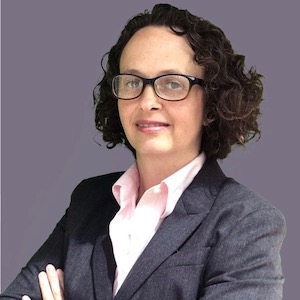Ronni G. Davidowitz: Partner, Head of New York Private Wealth, Katten
“When someone asks me about job longevity at one firm—as it is not often you see that nowadays—I say, ‘either I must love it or I cannot get another job,’” jokes Katten partner Ronni Davidowitz. “So I would like to think I love it.”
One look at her resume reveals Davidowitz is a lawyer who finds helping her clients with their estate and wealth plans both stimulating and rewarding. She shares her wisdom and lessons learned over decades of experience.
Finding a Home in Law
Davidowitz is ultimately a career one-firm woman who has utterly devoted her professional life to trusts and estates (T&E) law.
She began her legal career in 1979 at a small boutique firm with a heavy concentration in the trusts and estates field and then moved in 1985 to the New York City-based Rosenman & Colin LLP, which then merged in 2002 with a Chicago firm to become Katten Muchin Rosenman LLP, creating a 35-year tenure for Davidowitz at one firm.
“Given the amount of time, it feels like that has been my only home,” says Davidowitz.
After finishing law school at St. John’s University, Davidowitz, as noted earlier, worked briefly at a small firm where she gained experience handling trusts and estates matters, but eventually grew “fidgety.” While lunching with a fellow lawyer and sharing her plans to move on, serendipity struck—a perfect vacancy in his firm, which ultimately became known as Katten.
“I did not even have a resume together because I was really mulling over what I wanted to do,” recalls Davidowitz. “Next thing you know, I was in there, had an interview, did not interview anywhere else, they made me an offer and the rest—as they say—is history.”
“What has kept me at the same firm honestly is the people,” she muses. “It is a terrific group of people that I admire and respect, and I think it is mutual. I am just very fortunate to work with smart, capable, good and truly nice people. It makes a big difference.”
Practicing in Trusts & Estates Law
“I love the balance of the personal interactions and the intellectual challenges in advising clients on estate planning and wealth management needs and helping them avoid litigation,” says Davidowitz.
In her work, Davidowitz often develops relationships with generations of the same family, who are looking for assistance with succession planning and come with all the facets that family dynamics bring.
“The challenge in my area is that although money is what it translates to in terms of property and assets,” she says, “the undercurrent is the emotional charge.”
Working with wealthy families and individuals, each case is as unique as her clients and their personal needs. With such diversified work, she is grateful to call on her colleagues in different disciplines, such as real estate, corporate and tax attorneys who can offer more services to clients, like handling the transactional capabilities most frequently needed by ultra-high-net-worth individuals and the privately held businesses they run.
“I tend to think of us as the closest you might come to a generalist in the legal profession, much like a general practitioner in the medical field, versus all the various sub-specialties,” she says.
“Intellectually, it is stimulating,” states Davidowitz, who enjoys devising cutting-edge tax strategies so clients can save on income, estate, gift, and generation-skipping transfer taxes. “You really need to be mindful of what’s important to the individual—that is why there is no off-the-shelf answer.”
Witnessing the Influx of Women
Davidowitz is a daughter of Holocaust survivors, and as a first-generation U.S.-born citizen was the first in her family to attend college and graduate from law school.
She remembers a time when there were as few as ten women in her own law school class, whereas now women make up more than 50 percent of student enrollment. So she has witnessed the increase in women entering the profession, even close to home. Her own daughter is a “second generation” T&E lawyer.
At Katten, the firm has fostered an inclusive culture, focused on attracting, developing and retaining diverse talent.
“I know the firm’s leadership management has openly and often articulated its policy of diversity, inclusion and sensitivity to it,” she says of Katten.
Years ago, she became involved at an executive level in Katten’s Women’s Leadership Forum, when it was first formed to support the growth and retention of women attorneys through various initiatives, mentoring and professional development programs, and social and networking events.
Making Contacts and Creating Opportunities
One of her important lessons has been to invest in relationships that are mutually agreeable—and then be willing to leverage those connections.
“I have learned that contacts are really important. When you have identified people that you genuinely like, that you respect, then do not be shy about reaching out to them,” advises Davidowitz.
Unique in her practice area is that lawyers from different firms often get together in discussion groups and cultivate ties to one another.
“One of those women, who is a personal friend of mine now, was with-the-hand-at-the-small-of-your-back sort of guiding me,” Davidowitz says.
Not only did Davidowitz succeed her friend in becoming the chair of New York City Bar’s Estate and Gift Taxation Committee, but she was also recommended by her as state chair for Downstate New York for the American College of Trust and Estate Counsel (ACTEC), a 5-year term she is now completing.
“These are positions of prestige, so I have had the benefit of having someone who took that extra interest and looked out for me,” says Davidowitz. “And I try to pay that back. I try to make opportunities for my associates, male or female, though I personally have a large female group.”
Being True to Yourself
Another way Davidowitz supports young attorneys is how she approaches performance evaluations.
She prides herself on being a good judge of character, and considers that part of any evaluation process is to guide lawyers to achieve their goals—she iterates that it is very personal, for example not everybody wants to be partner, but those who do have steps to take.
“Evaluations are more than saying ‘people think you write well,’ or ‘you are a thoughtful attorney,’” she says. “An important part of the process is guidance—career development, advice on how to proceed, or maybe a suggestion to take a step back if there is too much pressure with the family balance and workload.”
She advises being really true to yourself, and figuring out the pace that will work for you. She sets achievable goals of five-year increments to get where she wants to go—a reasonable time period to get set up for success.
For example, she focused on completing the necessary requirements, like public speaking and involvement in bar associations, to be elected as a Fellow to ACTEC.
One way she creates opportunities for associates is having them co-author articles or chapters with her, from which they receive byline credit, or helping to place other lawyers on bar association committees aligned to their interests.
Proud Lawyer, Prouder Grandmother
Davidowitz is proud of her leadership involvement in many organizations like ACTEC, being surrounded with the top minds in the field with the opportunity to give back.
She had been honored for her work and her civic contributions by 400 of her peers at the United Jewish Appeal (UJA)-Federation of New York, a philanthropic organization in which she also had served as chair of its T&E committee.
What she is most devoted to, however, is her family and her six grandchildren. “I have told anyone that the best club to be in is the grandparent’s club,” she says.
As a self-confessed “voracious reader,” Davidowitz seeks to pass on her own passion by building a little book club among her grandkids.
By Aimee Hansen










